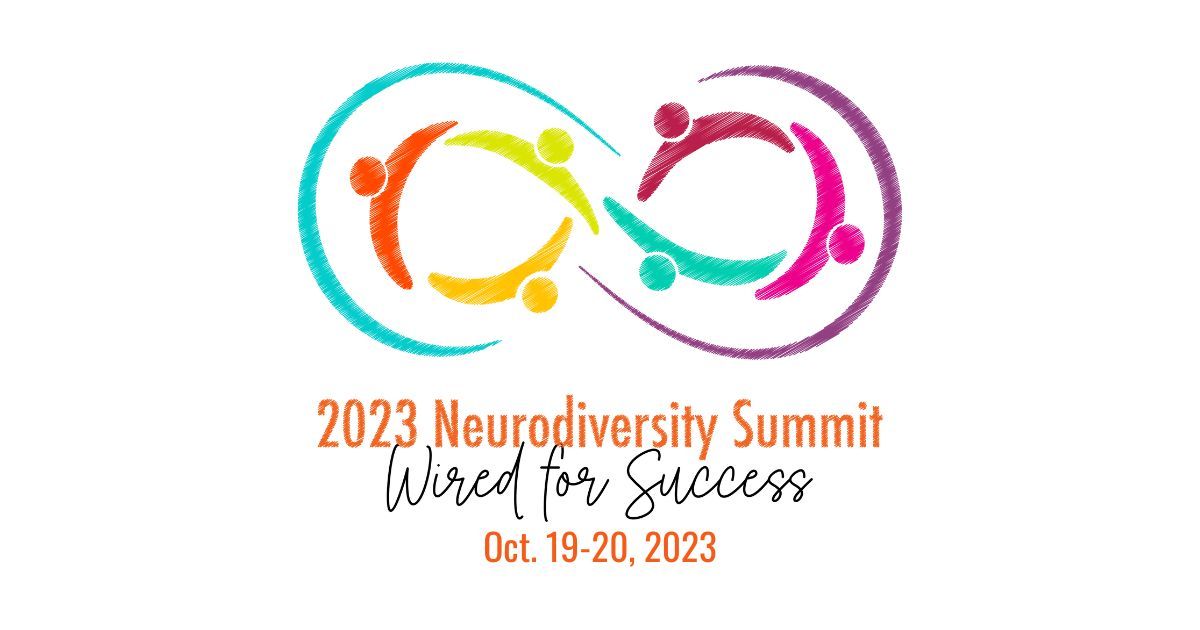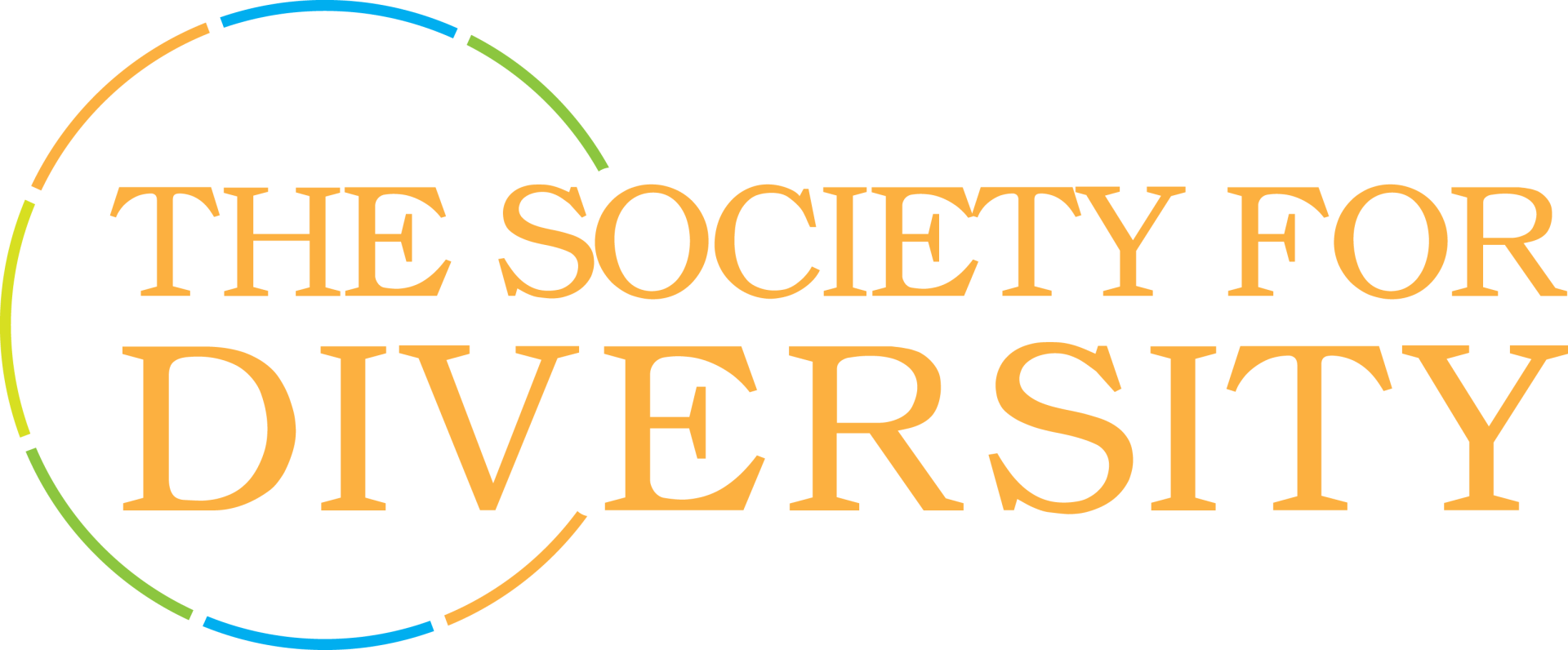2023 Neurodiversity Summit: Wired for Success

Get Wired for Success!
Explore next-generation DEIA practices that advance neurodivergent experiences, interventions, and achievements
At the 2023 Neurodiversity Summit, attendees explored neurodiversity in team management, innovation, accessibility, and user experience. Our inspirational speakers are not only experts in their fields, but they also have personal, lived experiences directly related to neurodiversity in the workplace, by being neurodivergent or through allyship.
What is neurodiversity and why is it important?
Neurodiversity encompasses a wide range of conditions, including autism, ADHD, dyscalculia, dyslexia, dyspraxia, Obsessive-compulsive disorder, Tourette syndrome, and traumatic brain injury, among others. People with these conditions often have different ways of thinking, learning, and communicating than neurotypical people (those without neurological differences).
Neurodivergent people often have unique strengths and talents that can contribute to the workplace in a variety of ways. They can also bring different perspectives to the table, which can be valuable in problem-solving, creativity, and decision-making.
Much research has been done on the advantages of including neurodiverse workers to achieve breakthroughs in science, technology, and other fields. Nevertheless, employers often apply outdated terms/concepts and utilize ineffective strategies when trying to include neurodiverse workers. This can impact retention, engagement, accessibility, team work, and management, to name a few. It's important for employers to level-up their skills, as well as improve experiences for all stakeholders.
Summit Objectives
- Share (versus teach) the amazing stories and unique lived experiences of neurodiverse individuals for purposes of innovation, accessibility, and user experience enhancements.
- Strengthen your ability to attract, develop, include, engage, and retain neurodiverse/neurodivergent individuals and/or people with disabilities.
- Ensure that caregivers are not invisible and design a flexible environment that can accommodate a variety of needs.
- Foster bias-free environments where neurodiverse individuals can thrive at school/work and enhance their skills while maintaining an authentic identity.
- Maximize the potential and effectiveness of neurodivergent and neurotypical leaders.
- Increase the knowledge of neurotypical staff by providing new ideas for learning, information-sharing, and allyship.
- Cultivate belonging and a sense of community for neurodivergent employees in the workplace.
Awards and Criteria
The Awards:
- Neurodiversity Employee Inclusion: Recognizing inclusive recruitment and retention practices and processes.
- Responsible Neurodivergent Design: Recognizing holistic approaches to innovation, user experience, research, and development by applying a neurodivergent lens to testing, design, and/or development
- Neurodiversity in Management: Recognizing training and professional development to management teams on neurodiversity, interventions, successes, etc.
Evidence of the winners’ inclusive excellence will be observable in a myriad of ways, including:
- Substantial policy changes to correct/remove discrimination and bias, or enterprise-wide adjustments that reflect transparent, equitable, and inclusive management practices.
- Demonstration of advocacy for equitable access for neurodivergent communities.
- Use of innovative or advanced technology.
- Employing enterprise-wide/management learning and collaborations.
- Significant financial or resource commitments to improve equity in service access or to remediate treatment/engagement imbalances within diverse groups.
- Integration of neurodiversity in a business strategy that results in exemplary revenue generation and/or cost savings.
A selection committee comprised of diversity experts determined whether the strength of each nomination and selected based on the following criteria:
- Innovation: Significant improvements to, or a positive transformation in, the organizational fabric; in the culture; or with marginalized groups. Evidenced by a unique approach to solving a real business problem and/or proactively changing the organizational culture.
- Planning: Intentional processes that can be replicated and/or scaled. Evidenced by a formal strategy with evaluation criteria and/or the application of data-driven insights.
- Sustainability: A plan for ongoing implementation and/or improvements to the process. Evidenced by a multi-year and/or multi-faceted commitment with key performance indicators.
- Fortitude: Overall strength in meeting the nomination criteria. Evidenced by ethical decision-making, transparency, collaboration, and/or values-driven leadership.
Award Winners
Neurodiversity Employee Inclusion
Gabriella Barrientos, PhD(c), MAE, BCBA, CDE®, LBA, IBA, CSSC, Owner and Executive Director of Twice Affirming Behavioral Services and Co-Owner of Twice Consulting Services
Responsible Neurodivergent Design
Simon Hewitson, Employment and Skills Manager at the Leeds City Council in Leeds, England
Neurodiversity in Management
Neurodiversity in the Workplace (NITW), a groundbreaking organization led by Joseph Riddle
Speakers
-
Understanding ADHD: Tips to Succeed Including Accommodations
Julia Mendez Achée, CDP®
HR Policy & Employment Compliance Counselor at Chevron
How can people with ADHD succeed in school, work, and life? Julia Mendez Achée, CDP® will share her lived experiences with ADHD and provide practical tips for success, including symptom management, coping strategies, and finding support.
-
Shattering Stereotypes: The Importance of Sharing Diverse Stories of Neurodivergent Women
Vivian Acquah, CDE®
Founder, Amplify DEI
Did you know that many women with neurodevelopmental conditions, such as autism and ADHD, go undiagnosed until later in life or even adulthood?
This alarming reality can result in a lack of appropriate support and treatment for these individuals. By delving into diverse stories and experiences, we aim to challenge stereotypes, raise awareness, and ultimately improve the lives of neurodivergent women.
As a DEI consultant, Vivian Acquah, CDE® understands the critical need for shedding light on the often overlooked and misunderstood experiences of neurodivergent women. Join this session as we explore this pressing issue and uncover the transformative power of sharing these unique narratives.
-
Navigating the Intersection of Disability and Neurodiversity
Kelly Green
Founder and Executive Director, Abilities WORKS!
How does neurodiversity intersect with visible and nonvisible disabilities? Kelly Green will humanize the challenges and opportunities that people with disabilities and neurodiversity face, based on her lived experiences with multiple sclerosis and through her advocacy work. Her session will cover understanding and respecting unique needs, navigating the world as a person with a disability and neurodiverse condition, and building more inclusive workplaces for all persons.
-
Becoming Neuro-inclusive by Default: Why Inclusive Technology is the First Step
Chris Grous
Workplace Inclusion Lead, Texthelp
Solving big diversity and inclusion challenges in the workplace can be a slow process. But for neuro-inclusion, small changes, such as the provision of inclusive technology, can make a big difference. As responsible business leaders, we must support neurodivergent employees, without requiring them to ask for help. This is particularly important considering that 43% don't feel comfortable to approach their employer to ask for change. We should aim to become neuro-inclusive by default.
Discover why inclusive technology is a great first step. We’ll explore how technology can be used to:
- Empower all employees to thrive, regardless of whether they’ve disclosed a neurodiversity.
- Create an inclusive culture where employees feel comfortable and confident to bring their whole selves to work.
- Support employers to attract, develop and retain a neurodiverse workforce.
-
Neurodiversity in the Workforce
Janet Jones‑Jordan, CDP®
Sr. Director, Community Inclusion, Autism Speaks
Neurodiversity in the workplace can enhance an organization in many ways. Neurodivergent employees can contribute their talents, skills and perspectives in varying ways that directly benefit an organization’s mission and goals. Neurodivergent employees help support productivity and performance and now more than ever, employers recognize these benefits and are creating hiring programs that focus on recruiting neurodivergent employees.
During this presentation, Janet Jones-Jordan, CDP® will share the how creating a workforce to include people with a variety of perspectives, backgrounds, and experiences will create a culture of inclusion and belonging.
-
I’m Neurodivergent, I Succeeded
Dr. Mary McConner, CDE®
Founder and Principal, Inclusive Excellence Consulting
Is it possible to use the unique characteristics of dyslexic thinking to succeed academically and professionally? Dr. Mary "MJ" McConner, CDE® is going to share her personal story of how she has been able to thrive as a dyslexic academic, entrepreneur, and DEI practitioner and how neurodivergent thinking can lead to success for others.
-
Graduating from College, Succeeding in Employment, and the Importance of Community Engagement
Eren Niederhoffer
Data Mining Specialist with Michael Kipniss and Autism Self-Advocate
Eren's discussion begins on his path from high school to college, including how he learned to make friends in different settings, the importance of asking for help, and how to seek feedback. Post-graduation, Eren discovered and will share how networking in the autism community and support agencies can help with obtaining and advancing in employment.
Erin will also discuss agency and non-agency assisted efforts that support autism self-advocacy and share socialization tips that aided in his interactions.
-
Neurodiversity Allyship: A Key to Workforce Success
Dinah Rainey, JD, SHRM-SCP, CDP®
Founder and Principal Consultant, First Class Consulting Group, LLC
During this session, Dinah Rainey, JD, SHRM-SCP, CDP® will discuss the challenges faced by neurodivergent employees, the power of neurodiversity in the workplace, and the importance of allyship. Dinah will provide participants with actionable steps to become effective allies to neurodivergent employees and with practical strategies and best practices for creating an inclusive workplace environment that supports their success.
-
The Neurodivergent College Experience
Leah Smiley, CDE®
Founder and President, The Society for Diversity and Institute for Diversity Certification (IDC)®
Dr. D. I. Lee, CDE®
Global VP, DEI Education & Certification, The Society for Diversity and Institute for Diversity Certification (IDC)®
Leah Smiley, CDE® and Dr. D. I. Lee, CDE® will moderate a panel of students as they share their unique perspectives on the challenges and opportunities of being a neurodiverse in college.
“Current students comprise our future labor force; understanding how colleges prepare them for work is critical to the future of DEI,” says Smiley. “The panel discussion will help raise awareness about the challenges neurodiverse college students face as they ready themselves for the workplace.”
Gwinnett Technical College Student Panelists:
- Kayden Bell
- Troy Cooper
- Shamika Hawkins






